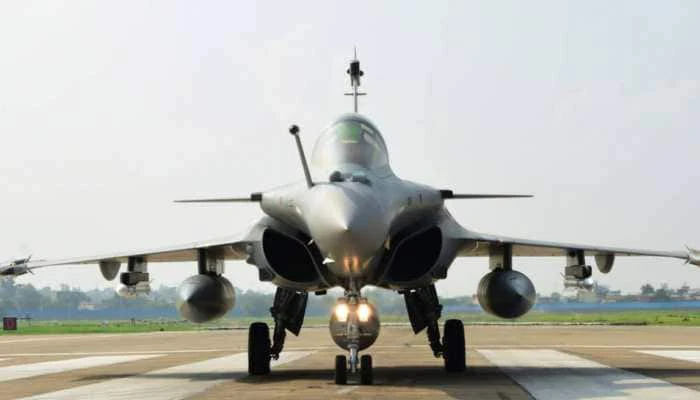India has shown its interest in the procurement of 26 Rafale-M (Marine) fighter jets for the Indian Navy, alongside a proposal from the Indian Air Force (IAF) to acquire 114 Rafale aircraft to be manufactured domestically under the Make in India initiative.
Notably, Indias decision to expand its Rafale fighter fleet could face new strategic complications as recent reports suggest that Frances export policies toward Gulf nations may be compromising sensitive military technology.
Frances sale of Dassault Rafale multirole jets to Qatar and the United Arab Emirates (UAE) has raised growing concerns among security analysts. The issue gained traction after reports emerged that Qatari and Emirati air forces had allowed Pakistani and Turkish pilots to train on their Rafale and Mirage platforms, indirectly exposing key performance and electronic warfare characteristics of the French jets.
India, which inducted 36 Rafale aircraft between 2020 and 2022 under a 7.87 billion Euro deal, used the fleet effectively during Operation Sindoor, a high-intensity exercise against simulated Pakistani targets. The Indian Air Force (IAF) has since been considering a follow-on order for 26 Rafale-M variants for aircraft carrier INS Vikrant, and potentially more for its land-based squadrons. However, the unrestricted Rafale exports to states with historical military ties to Pakistan and Turkey are now prompting strategic reconsideration.
Europe-based security researcher Babak Taghvaee, whose detailed analysis of arms transfers and technology leakage has gone viral among defense watchers, warned that Macrons administration is unintentionally empowering NATOs adversaries by recklessly selling Dassault Rafale fighters to the UAE and Qatar without proper export-control safeguards.
“A striking case is Turkeys cooperation with Qatar. Ankara has accelerated training of its F-16 pilots and S-400 operators to counter the Hellenic Air Forces Rafales, using six Qatari Rafale DQ/EQ fighters deployed to Turkey. Similar instruction continues in a joint Turkish-Qatari squadron in Qatar. By allowing a close French defense customer to expose Rafale performance and signatures to a state threatening a NATO ally, Paris again demonstrates the danger of its permissive export policy,” wrote Taghvaee in his blog.
The risks are not theoretical. The UAE has previously transferred Mirage 2000-9EAD technology and MICA missile data to China, which analysts believe supported Beijings work on PL-10 and PL-15 air-to-air missiles. Emirati Mirage aircraft were also observed in China during 20232024 as part of a bilateral training program with the Peoples Liberation Army Air Force (PLAAF).
Such developments could erode the technological edge India and its allies currently enjoy. Any overlap between the Rafale systems operated by Qatar or the UAE and Pakistans exposure to them directly impacts IAFs combat confidentiality, noted defence analysts.
Experts also point out that Frances lack of strict end-user monitoringespecially compared to US defense saleshas enabled unintended technology diffusion. The UAEs rejection of the F-35A was reportedly driven by Washingtons stringent control clauses, while Paris imposed few restrictions.
Industry observers warn that the issue could backfire on Frances defense credibility within NATO, especially if sensitive data leaks result in the compromise of Rafales Spectra electronic warfare suite or radar signature profiles.
If conflicts involving NATO or India arise where Rafale jets face opponents equipped with Chinese or Russian missile systems, analysts argue that Pariss lax export control regime could end up eroding the aircrafts survivability.
